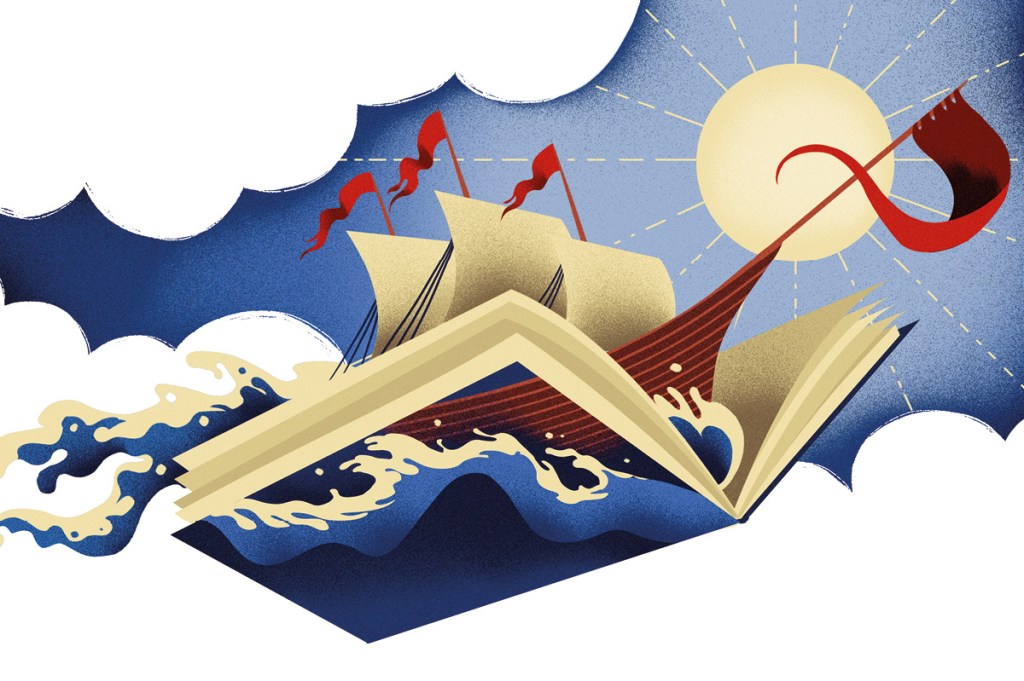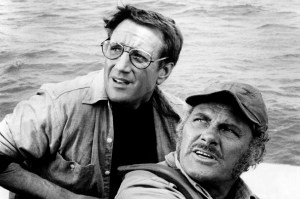David Grann is one of a very select club of writers: those whose books of history are so diverting that they almost seem implausible. Their narrative constructions are so effective, the dialogue so apposite, that jaded readers might think everything has been made up or twisted to give the books life, in novelistic fashion.
And yet — as with the books of Erik Larson — that’s not true at all. It’s all there in the notes: everything between quotation marks was actually said or written. It’s a remarkable skill.
This is a hell of a story, and I use that word appropriately. Those who shipped out from Portsmouth on HMS Wager in 1740 — part of George Anson’s circumnavigation of the globe — struggled through hell. Most of them died: from scurvy, in storms, from shipwreck in Patagonia. The few survivors endured mutiny and never quite escaped Cain’s mark of cannibalism, if only by attribution. Even those who recovered did not return to England for many years after they sailed.
They left on a military mission: to take part in the War of Jenkins’ Ear against Spain. On this fleet were many men whose later writings would define the tragedy of the ship.
They included David Cheap, an officer later promoted to captain, whose hope was to be a leader of men in the great traditions of the navy. A somewhat dandified midshipman, the teenaged John Byron, whose grandson became a famous (and notorious) poet. A strong and defiant gunner, John Bulkeley, who kept a journal and guarded his privileges and rights. And many more who would never live to tell their stories.
Almost from the first, the sea proved both the fleet’s transport and its enemy. Grann captures its various moods superbly: “There were glassy waters and ragged, white capped waters and brackish waters and transparent blue waters and rolling waters and sunlit waters glittering like stars. One time, Bulkeley wrote, the sea was so crimson it ‘looked like blood.’”
Passing through periods of hardship on the way to South America, the Wager was violently wrecked upon an island off what is now Chile. The storm threatened to drown all on board as it tore the ship to pieces.
The weakened crew dragged themselves off the foundering carcass of their “wooden world” onto the shore. Some went mad, threw off all constraints, and began to drink, to carouse, and to steal fine clothes from the officers’ sea chests. Others tried to build shelters. The captain, Cheap, desperately guarded his authority even as it ebbed away amid a tide of mutinous thoughts.
Cheap “believed that a good sailor must possess ‘honor, courage… steadiness.’” Soon many of the survivors lacked all three.
They had, they thought, no hope of rescue. Swiftly — remarkably quickly — the survivors fell to pieces. In under two months, the group experienced schisms and violence. Even when it looked as if they might be rescued — friendly Kawésqar people arrived on canoes and traded with, fed and sheltered the shipwrecked men — things collapsed. The Kawésqar were scared off by the barbarous behavior of some of the English, and soon fled.
Cheap, perceiving that he was no longer in control, fatally shot Midshipman Henry Cozens in the face after the boy had been liquored up by his colleagues and invited to speak his mind about the captain.
After this, a general mutiny broke out, with Bulkeley taking control under the nominal leadership of the lieutenant, Robert Baynes. He and his supporters commandeered some of the smaller vessels formerly carried by the Wager, and set off, after false starts, to Brazil.
The captain, meanwhile, in a small and unhappy party which eventually included John Byron, made his own journey away, not to Brazil, but to a nearby Spanish colony, which he had hatched a delusional plan to capture.
Remarkably, in several different parties, over several years, groups of the Wager’s men began to arrive in England. They had moved via Brazil and the Atlantic trade; many had been in Spanish captivity after the captain’s scheme unraveled and they ended up in prison. But slowly, the survivors trickled back, and began to publish conflicting accounts of their sufferings.
Grann is at his best when he describes the books and pamphlets that resulted. Bulkeley had kept an obsessive ship’s log from the beginning of the voyage, and in order to save his men’s necks from the charge of mutiny, he published a self-justifying account of their sufferings, with the name of another man, John Cummins, alongside his own on the cover.
“This account was something striking in English letters,” Grann writes: “the story… told in a bracing new voice — that of a hard-nosed seaman.”
Remarkably, the accused were acquitted by the court martial, whose members did not need to condemn these men and thereby complicate the triumph that Anson had managed to achieve without them. Eventually John Byron produced his own account, upon which his grandson drew heavily for the salt-flecked passages of Don Juan.
Grann’s book draws on this influence, and others like Conrad and Melville, but the book which results is entirely, thrillingly, his own. It’s an extraordinary story, stunningly told.
This article was originally published in The Spectator’s May 2023 World edition.

























